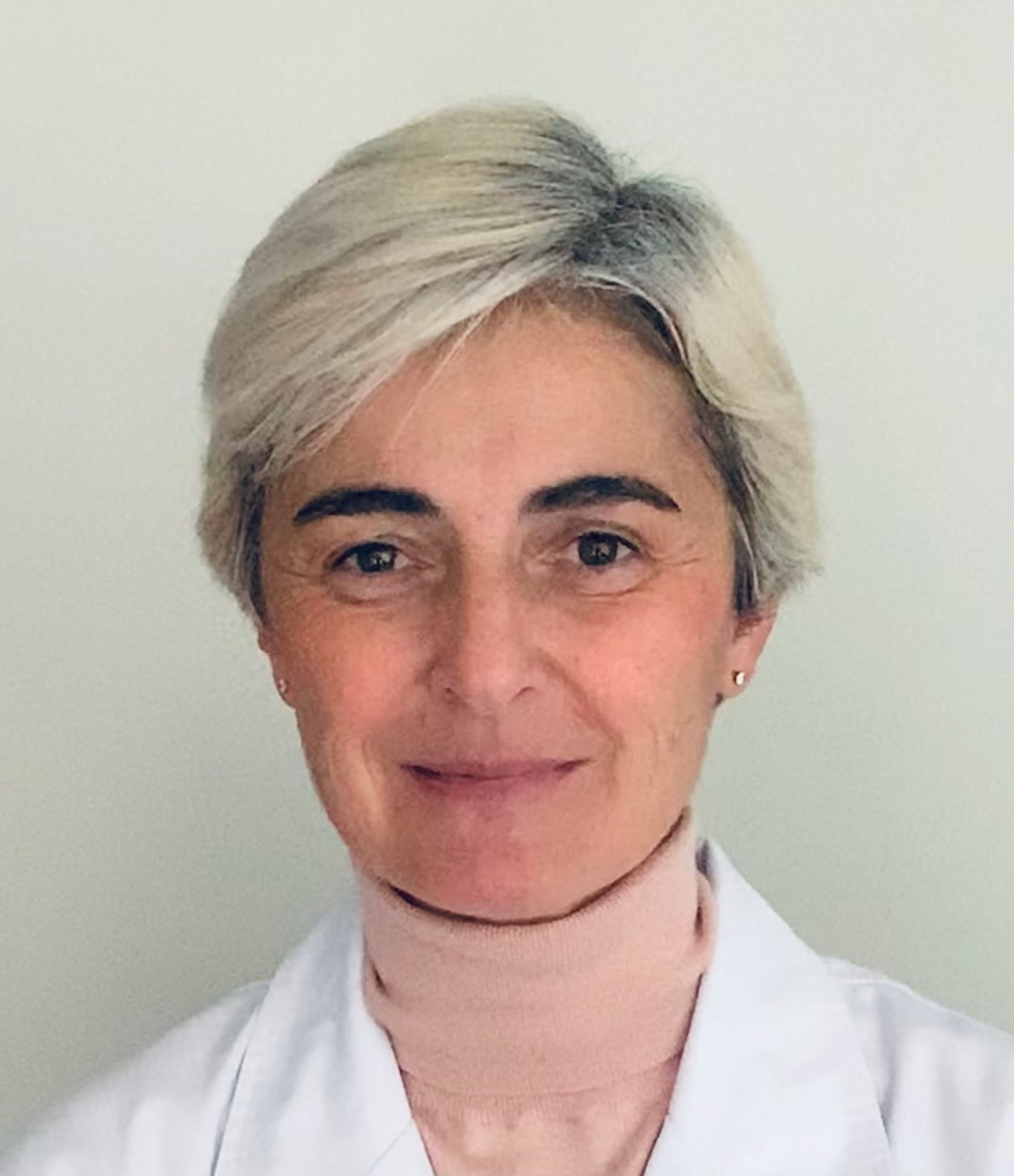
- Criotransferencia, Embriodonación, FIV, Ovodonación
Autora: Sylvia Fernández Shaw
 Español (Spanish)
Español (Spanish) Français (French)
Français (French) English
English
Involving and listening to the patient, and above all, having empathy, are fundamental factors that can influence the success of the treatment
Dra. Sylvia Fernández-Shaw Zulueta
“Have you always wanted to be a doctor? Why?”
Helping patients, both physically and emotionally, gives meaning to the medical profession. Medicine also fosters curiosity and continuous learning. It is an inexact science, where a solid education is crucial, and one must be prepared for the variability that can occur in each patient. It also demands not neglecting factors that can influence the success of treatment, such as involving and listening to the patient or having empathy. In essence, medicine poses a human and intellectual challenge. Lastly, it is a profession that requires teamwork, promoting respect for collaborators and the patient, who is also part of the team.
“What led you to go to England and choose the specialty of Assisted Reproduction?”
Back then, there was no Erasmus, but a teachers’ strike at the Autonomous University’s School of Medicine prompted me to try studying a trimester outside Madrid. My boyfriend, now husband, was teaching at the University of Oxford, so I applied to spend the trimester there, which coincided with the study of Gynecology and Obstetrics.
The teaching method at Oxford is what we imagine it should be everywhere. Small groups, combining theory and practice, giving students responsibility for patient evolution—it simply fascinated me. During that trimester, I learned about Assisted Reproduction, then an emerging specialty, which I found incredibly interesting due to its clinical and emotional complexity, the social and ethical debate it sparked, and the extensive research yet to be done.
“Why did you pursue a Ph.D. at the University of Oxford, UK?”
I always had an interest in basic science, and I thought that if I were to do research, I should do it before starting to work as a doctor. Having spent a trimester in Oxford as a medical student made it easier for me to be accepted as a Ph.D. student in the Research Department linked to Gynecology and Obstetrics.
I was offered to work on a project about the Biology of Endometriosis. A whole new world, at least for me: developing new techniques for isolation and cell cultures, studying markers and growth factors for potential drug development against the disease, culturing endometrial cells to enhance embryonic development…
I completed the Ph.D. in 3 years, and after this time, I was offered to start the specialty of Gynecology and Obstetrics while maintaining a connection with the research team and the Assisted Reproduction team.
“Why do you think so many women or couples turn to fertility treatments? These treatments are expensive and not everyone can afford them.”
The trend to delay motherhood is the main reason for the increasing need for assisted reproduction treatments. The factors contributing to this delay are numerous: the challenging work-family balance, difficulty in finding a partner, successive economic crises, lack of maternity support or tax incentives…
The latest survey on reproductive desire in Spain tells us that almost three out of four women would like to have at least two children. Although the desire to become a mother has been delayed, only one in ten women over 30 does not want to be a mother. However, in 2021, the fertility rate in Spain was 1.19 (almost the lowest in the world, second only to South Korea).
The issue is that reproductive desire has become desynchronized with a woman’s biology. A woman’s fertility begins to decline after the age of 30, with significant changes occurring at 35 and 38, and a sharp drop after 40. The average age for mothers to have their first child has been delayed to 32.6 years in Spain in 2021, and 10.2% of first-time mothers are 40 years or older (when 20 years ago, this group was a negligible 1%).
The increase in fertility treatments is also due to new family structures, such as same-sex couples or single women, who want to have children and need assisted reproduction to achieve it.
Regarding the cost of treatments, it is true that they are high. These treatments require high specialization and continuous training for the medical and embryology team. But the main reason for the prices is the laboratory costs, which, in addition to daily expenses, require investment in techniques and instruments to improve the likelihood of pregnancy in patients.
“What brings you the greatest satisfaction in your work?”
Having children is one of the most important things in life. The difficulty in having them leads to a range of negative emotions—sadness, frustration—and can destabilize and break couples.
Most patients never imagined they would have to undergo these treatments. When they finally take the step to seek help, it is not always easy or quick to achieve pregnancy. It is not always successful with the treatment they originally planned, in the time or with the money they had prepared, or even with their own eggs or sperm. Sometimes everything happens quickly, and other times, it is an emotional ordeal with a significant economic cost.
Patients deserve my deep respect. It is a privilege to accompany them on the journey to achieve their goal. And finally, when pregnancy occurs, the joy is enormous, for both the patients and the medical team.
“What is the current situation of infertility in Spain, and what are its future prospects?”
Infertility seems poised to continue increasing. Despite frequent warnings about the disastrous impact of negative demographic growth in many countries, it seems challenging to reverse the current trend of postponing motherhood and having few children per woman.
I would love for most women under 30 and their partners, in their best fertile moments, to be able to have the desired children under suitable work-family conditions. However, this is not our current reality, nor does it seem to be a common political or social goal.
The pragmatic response to this problem from a medical standpoint has been to develop means to freeze eggs, offering young women the possibility to preserve their fertility. This technique allows women to decide to have children late (biologically speaking) with their own eggs. It is a kind of self-donation. Currently, egg freezing is probably the best gift that can be given to a newly graduated woman, who almost certainly cannot consider becoming a mother until after 30.
“What does it feel like in a situation of failure in Assisted Reproduction Techniques?”
In reproductive treatments, it is normal to have lost battles before winning the war. What lifts spirits after a failure is providing the maximum emotional support possible and looking at the problem with perspective. It is essential to carefully evaluate the treatment performed to extract useful information for the next attempt and change strategy if necessary.
The most important thing to achieve final success is to provide complete and honest information to patients. Having a clear understanding of the success of each treatment before starting, its economic cost, and the emotional and time effort it will require helps face the results.
“Married with three children, how do you manage to balance your family and professional life?”
Most women around me have balanced it with astounding naturalness. My mother, my sisters, my best friends—all have had fairly demanding professions and have had children. It requires some organization, not wasting time, prioritizing tasks, and having patience with oneself, knowing that not everything will be perfect. It is true that being a doctor conditions moments that, for others, are rest or leisure, but when your life has always been like this, it seems normal.
I don’t know if I would dare to ask my family how they experienced it. I think well, with joy and patience, knowing that vacations are those special moments where, finally, we have time to do things together and talk. Our children, all boys, now older, frequently convey their appreciation for having a professional mother.**


Camino de la Zarzuela, 19 28023 (Aravaca) Madrid.
+34 91 740 16 90
secretaria@urh.es
Monday to thursday
8:00h a 14:00h 15:00h a 19:00h
Friday
8:00h a 14:00h



Demande un rendez-vous.
PIDE CITA
Envíanos este formulario con tus preferencias para la cita (fechas y franja horaria) y te llamaremos por teléfono para concertarla. En caso de que quieras que te contactemos por e-mail indícanoslo en los comentarios. Muchas gracias.